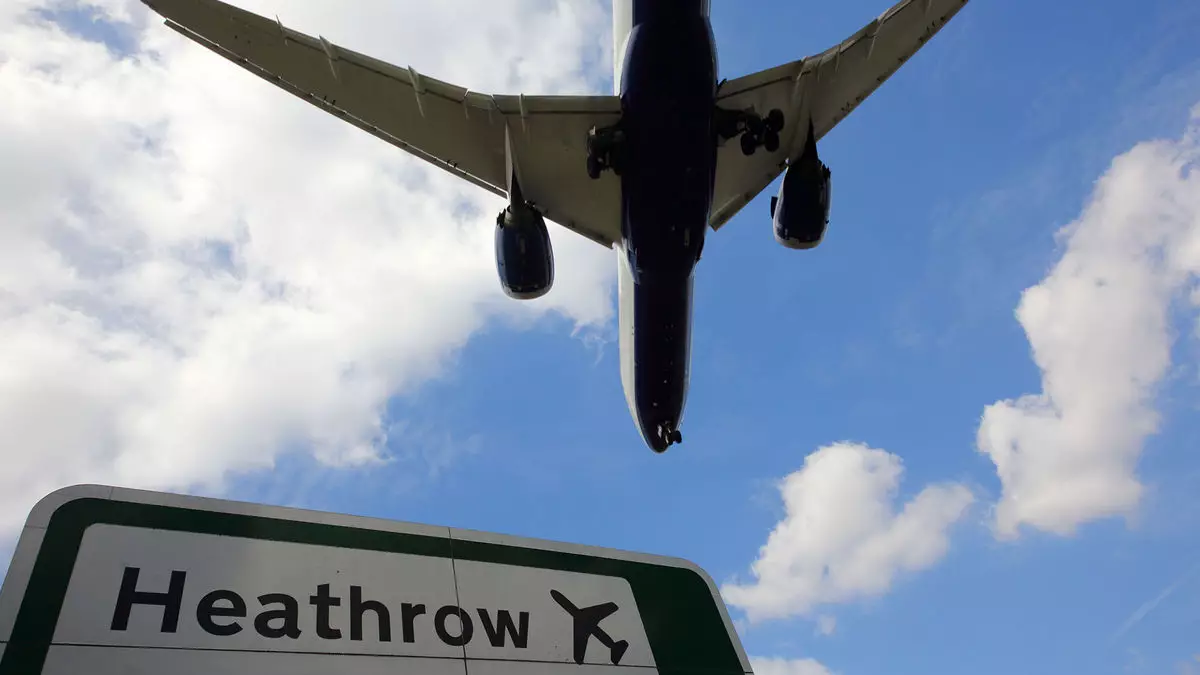In an era where efficiency and convenience define consumer expectations, the new pilot program at London Heathrow Airport represents a major leap toward transforming the international travel experience. Effective February 4, this initiative facilitates an unprecedented level of ease for passengers connecting to third countries from the U.S., primarily showcasing American Airlines and its partnerships with British Airways and Virgin Atlantic. By allowing travelers to bypass the tedious process of reclaiming checked baggage and rescreening, the program is not just a win for time management; it’s a significant improvement in passenger satisfaction.
Typically, U.S. travelers transiting through the U.K. face a convoluted protocol that entails retrieving checked bags and undergoing separate security screenings—frustrations that often lead to delays and increased stress. With the pilot program, passengers can transfer directly to their connecting flights while their luggage is automatically moved to their final destinations, similar to domestic connections within the U.S. This switch isn’t merely about convenience; it represents a comprehensive reshaping of international airport operations to fit the demands of modern travelers.
Customer Response and Impact on Travel Time
American Airlines has reported overwhelmingly positive feedback, with travelers saving between 30 and 40 minutes on their transfers. Based on the statement from Gary Tomasulo, American’s chief security officer, the average flight from Dallas to Heathrow sees around 100 to 150 connecting passengers. The overwhelming endorsement from customers indicates that this initiative has resonated deeply, addressing longstanding pain points in cross-border travel.
The perception of travel as a chore, rife with redundancies and access challenges, stands to be fundamentally changed. The program’s ability to streamline the transfer process is as vital for operational efficiency as it is for enhancing the user experience. With other stakeholders in the travel industry observing these developments, it is likely that similar programs could emerge, effectively raising the bar for international transit protocols across different airports.
The One-stop Security Pilot Program: Key Features and Future Potential
The program’s foundation lies in the One-stop Security pilot, a strategic initiative brought about by the TSA and established through Congressional action in late 2022. This program is not just an isolated experiment—up to five additional tests in international airports are on the horizon, with expanded trials expected by 2028. As American Airlines looks to integrate this system beyond Heathrow, potential hubs include major cities like New York, Miami, and Charlotte.
The complexity of implementing this scheme is not trivial; American Airlines faced multiple hurdles to synchronize operational standards between the U.S. and U.K. aviation security protocols. The fact that it took years of negotiations illustrates the intricate nature of aviation laws across borders. Improvements in coordination between the TSA and U.S. Customs are essential for expanding the program, and recent criticisms regarding the pilot’s slow rollout suggest that stakeholders must act swiftly and collaboratively to optimize global travel security.
Global Implications and Security Benefits
One-stop Security stands out not just for enhancing traveler experience, but also for the potential implications on global aviation security. Advocates like Ryan Propis from the U.S. Travel Association hail it as a “game changer,” positing that such standardization increases security measures on a worldwide scale. Effective coordination can yield benefits beyond the immediate travel experience, reallocating resources in TSA and Customs operations to other crucial areas.
As this initiative takes root and matures, we may see similar implementations in high-traffic international hubs, including but not limited to airports in Paris, Amsterdam, Frankfurt, and Seoul. These global gateways could follow Heathrow’s lead, potentially transforming how we perceive connections internationally.
A Call for Innovation in International Travel Protocols
Despite the promising nature of the One-stop initiative, industry experts critique the program’s gradual implementation pace. U.S. Travel’s demands for greater flexibility reflect an urgent call for innovation in travel protocols, highlighting the necessity for a collaborative approach between governmental agencies and airport authorities. This vision of a more integrated model could reframe how travelers navigate international security landscapes.
The potential for this program to catalyze similar advancements in other international airports happens at a particularly opportune moment when consumer expectations for hassle-free travel are at an all-time high. The aviation industry must prioritize adapting to these preferences, lest it be left behind as travelers increasingly seek out the most efficient routes around the globe.
In essence, the One-stop Security Initiative at Heathrow is not merely an isolated accomplishment but rather a stepping stone toward an evolved travel framework that prioritizes efficiency, security, and traveler satisfaction.


Leave a Reply